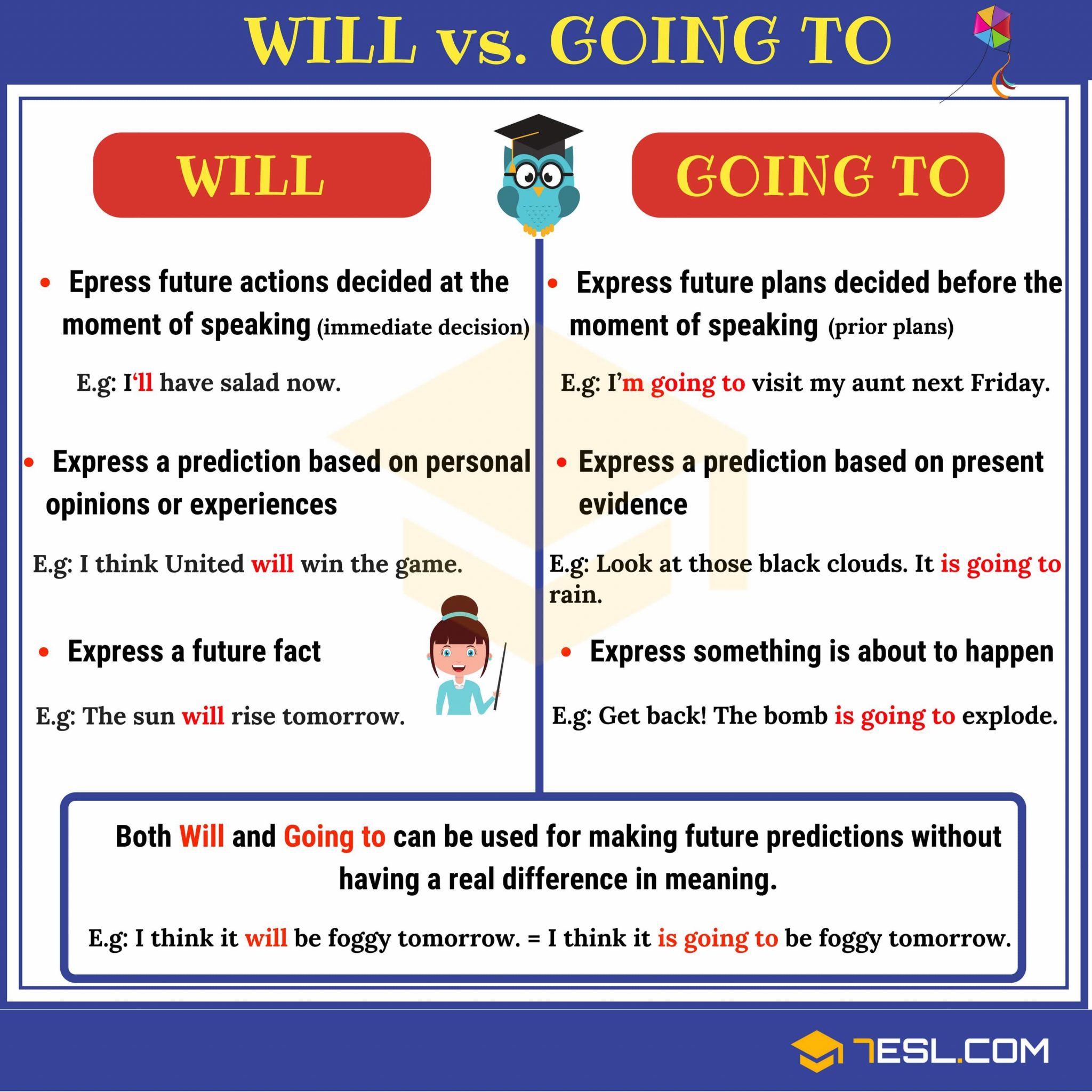In English, there are many ways of communicating about what will happen in the future. Will and going to are the two most common. In everyday speech, these two words are often used interchangeably without any problems. In formal writing though, there are some small differences between the two.
If you want to be as accurate and reliable, you must know that will is more often used with recent actions, certain future prospects, and predictions. Going to is often used to talk about things that have already been planned.
Don’t worry if you’re still not sure when and how to use will or going to. We promise that our explanations will be more detailed and that you’ll understand them by the time you’re done reading this article.
And to get the most out of learning English, You can always find AmazingTalker here. It is the best online English learning platform, and you can easily find more than 1000+ native teachers to help you improve your English.
When to use it GOING TO
BE GOING TO is usually used to talk about the future, but it usually has something to do with the present. We use it when the following things happen:
1. The act of making a decision or the intention to decide the future.
The choice has already been made before anyone speaks.
- They are going to retire at the beach. In fact, they have also already bought a small beach house.
- I’m going to say yes to the job.
2. When there are clear indicators that anything is going to be happening. (Evidence)
Something is likely to happen based on what you know or have seen.
- I think it is going to rain because I just felt a drop of water.
- I do not even feel well. I feel like I’m going to puke. (threw up = threw up)
3. When something imminent is about to occur.
- Get back! The bomb is about to detonate.
When to use the word WILL
When there is no clear or implied correlation to the present, you can use WILL:
1. For things we choose to do right now. (Make Quick Choices)
In this scenario, you make a choice on the spur of the moment, in an unplanned manner.
- I will make a purchase of one for you as well.
- I believe I will give one of those a shot. (I just chose to go with this option right now)
2. When we speculate or have beliefs about what might happen in the future. (Prediction)
- This is not the year that my club will win the league championship.
- It looks like it will rain later, so have an umbrella with you.
Note that you can utilize both Will and Going to in order to make predictions about the future.
3. To present anything as an offer, a promise, or a threat.
- If you purchase it right now, I will cut you a break on the price.
- I swear you that the next time I will behave properly.
- If you would like, I will accompany you to the theatre.
4. When someone says they won’t do anything, you use the word “WON’T.”
- I told him to take the trash out, but he won’t do it.
- No matter what I say, my children won’t pay attention to what I have to say.
- The engine in my car won’t start.
Future Predictions
As you can see, there is no major difference in meaning between the phrases Will be and Going to when they are used to make predictions about the future.
- The forecast predicts that it will rain tomorrow. (Correct)
- The forecast predicts that it is going to rain tomorrow. (Correct)
Compare Will vs. Going To
If someone were to inquire, “Are you busy this evening?,” your response would be “Yes.”
If I reply, “Yes, I’m going to the movie,” we’ll see each other in the theatre. I use going to since it is a plan I established previously, and it is still in effect (before I was asked the question). – Will is not an option for us in this particular circumstance.
If I have not made any plans, you have two options: either remark, “I will most likely watch TV,” or “I have no plans.” EITHER “I will most likely be watching television.”
Because we are merely speculating what will occur (given that we haven’t yet made any preparations), either will or going to is an option in this scenario.
Conclusion
An event that is going to take place in the future cannot have just one consequence predicted for it; rather, many distinct outcomes are possible depending on how things play out. When you want to talk about something that will happen in the not-too-distant future, the expressions “will” and “going to” are the ones you should use most of the time.
Both of these phrases are future tense. On the other hand, students of the English language may at times exhibit signs of perplexity regarding the appropriate usage of these words and the situations in which they should be applied.
However, even though both “Will” and “Be Going to” are acceptable methods to express the future tense in English grammar, the meanings of these two words are not synonymous. The word “Will” describes an event that will take place soon, but the phrase “Be Going to” describes an event that will take place in the immediate future.

